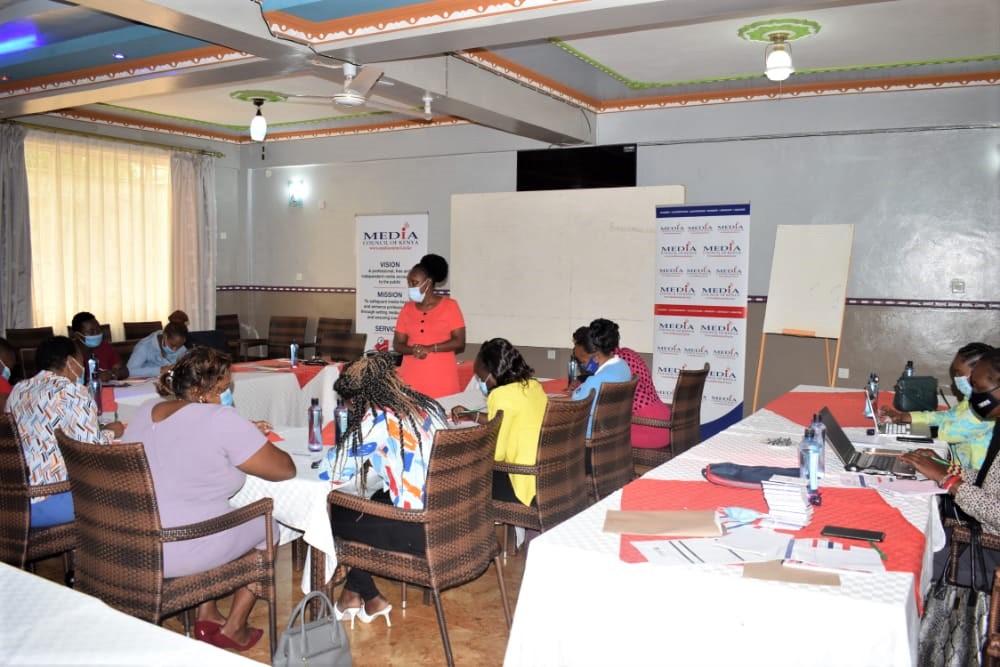
The MCK has encouraged female journalists in Kenya to assert themselves in decision making processes.
As more female journalists graduate annually from tertiary learning institutions, the number of those in decision making positions in media houses remain low. There is therefore need for enhanced inclusion of women to build an inclusive media environment.
It is for this reason that the Media Council of Kenya recently held a gender-based violence sensitisation forum in Embu for female journalists.
The journalists were taken through various media-related topics including safety, media landscape and the place of female journalists in the industry and how to competitively position themselves in the newsroom. They were also guided through several other challenges faced by female journalists in the media industry and how to overcome them.
“The media industry is growing rapidly in Kenya. Female journalists need to find their positioning to ensure they are seen and heard. Women are completely underrepresented at the decision-making levels of the industry and its time to change the game plan to propel women to these positions”, said Christine Nguku, MCK Assistant Director, Training and Curriculum Development.
The meeting was also informed of the disruptions brought about by technological advancements in the media space, and the need to create avenues to write and share stories in different formats on the digital platforms. The journalists were encouraged to take advantage of this opportunity and claim their space in the media industry.
“Women journalists should learn to report stories away from the norm, cover small heroes and unique voices that are not always heard”, noted Judy Kaberia from Journalists for Human for Rights.
A recent baseline survey conducted by the Media Council on sexual harassment in media houses revealed that 73 per cent of female journalists are highly likely to experience sexual harassment during assignments.
Veteran journalist, gender expert and media trainer Njeri Rugene implored the journalists to report cases of sexual harassment as soon as they happen.
“Journalists must stop any form of harassment as soon as it starts. In the workplace it often starts slowly then gets worse over time. Read the early signs and voice it before it gets far,” she said.
“Don’t let those who harass women journalists get away with it, speak out”.
The Council is carrying out similar fora across the country aimed at empowering female journalists on various issues affecting them especially on career progression and gender-based violence.